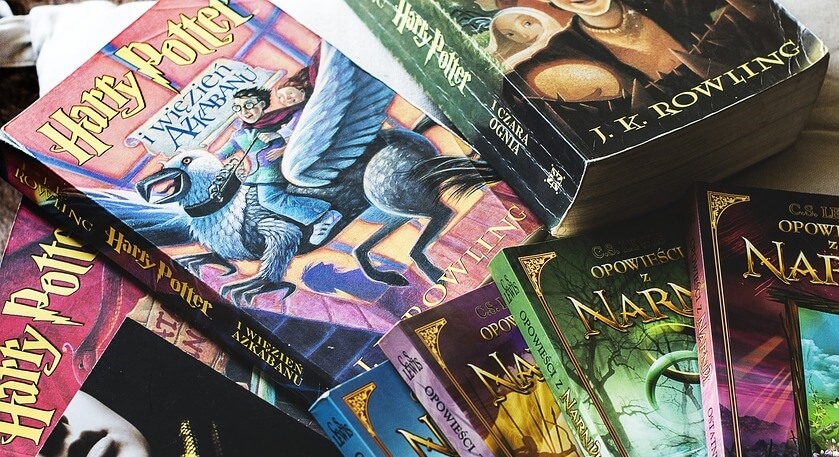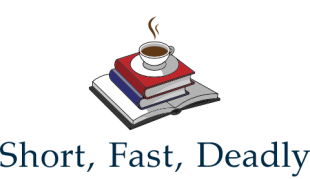Short, Fast, and Deadly will start collecting pieces of poetry and prose from readers who want to share their work to a wide audience. The best work will be published periodically. We accept any and all genres. In the meantime, enjoy some of the best-selling prose and poetry books from the first decade of the 21st century.
Prose
Harry Potter and the Deathly Hallows by JK Rowling
The seventh and final instalment in Rowling’s series about Harry Potter, the world’s most famous boy wizard and his trials with Lord Voldemort. We’ve seen Harry grow from an 11-year-old into a heroic young adult, whilst his readers grow with him. With 15m copies of this book sold on the first day, Rowling has to date sold in the region of 152m books across the entire series of Harry Potter.

Dreams from My Father by Barack Obama
Originally published in 1995 in the US, before Obama became President, the books was launched in Britain before he took on the role as the first black president in the USA. Frank and sensitive, the book is a memoir, recalling his search for his father and his roots.
The Da Vinci Code by Dan Brown
A crazy mix of conspiracy theories about Jesus built around the most basic elements of a thriller, this has sold almost as many copies as the Bible despite the many historical inaccuracies leading to the book receiving mostly negative reviews from Catholic and other Christian communities.
A Heartbreaking Work of Staggering Genius by Dave Eggers
This book chronicled Eggers’s life as the eldest of his siblings after the death of their parents from cancer. Fearless, impressive and unusual, it launched a new style of writing. The book was both a critical and commercial success. It reached number one on The New York Times bestseller list and was a Pulitzer Prize for General Non-Fiction finalist.
The God Delusion by Richard Dawkins
Belief in God is not only totally irrational, but actively harmful to society, says Richard Dawkins, asserting that when one person suffers from a delusion it is called insanity. When many people suffer from a delusion it is called religion. Whether you agree with him or not, his book was a popular demolition job of the world’s great faiths, explaining that one does not need religion to be moral and that the roots of religion and of morality can be explained in non-religious terms.
Poetry
Homer’s Odyssey
One of two major Homeric epic poems from ancient Greece. It is considered partly a sequel to the Iliad, the other work ascribed to Homer. The Odyssey is believed to have been composed at the end of the 8th century BC. The poem mainly focuses on the Greek hero Odysseus, king of Ithaca, and his journey home after the fall of Troy. It takes Odysseus ten years to reach Ithaca after the Trojan War.

Homer’s Illiad
The Iliad, or the Song of Illiad, is an ancient Greek epic poem, traditionally attributed to Homer. Set during the Trojan War, the ten-year siege of the city of Troy (Ilium) by a coalition of Greek states, it tells of the battles and events during the weeks of a quarrel between King Agamemnon and the warrior Achilles. Yet when it reaches an end the poem has told a more or less complete tale of the Trojan War.
Dante: Divine Comedy
The Divine Comedy is a long narrative poem by Dante Alighieri, begun in 1308 and completed in 1320. It is widely considered to be one of the greatest works of world literature done by one of the all time prose writers. The poem’s imaginative vision of the afterlife is representative of the medieval world-view and the narrative describes Dante’s travels through Hell, Purgatory, and Paradise or Heaven, while allegorically the poem represents the soul’s journey towards God.
Chaucer: Canterbury Tales
The Canterbury Tales is a collection of 24 stories written in Middle English by Geoffrey Chaucer between 1387 and 1400. The tales are mostly written in verse, although some are in prose. They are are presented as part of a story-telling contest by a group of pilgrims as they travel together from London to Canterbury to visit the shrine of Saint Thomas Becket at Canterbury Cathedral. The prize for this contest is a free meal at the Tabard Inn at Southwark on their return.
Walt Whitman: Leaves of Grass
American poet Walt Whitman (1819–1892) first published his collection of poems in 1855, though spent most of his professional life writing and re-writing Leaves of Grass, until his death. This resulted in vastly different editions over four decades. The revisions he made meant that the first book was of twelve poems. The final compilation held 400 of his loosely connected poems celebrating his philosophy of life and humanity.
